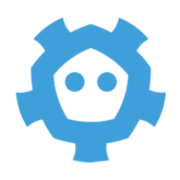Non-Relational Databases

Top Rated Products
(1-3 of 3)
All Products
(26-45 of 45)
Explore recently added products
Videos for Non-Relational Databases
Learn More About Non-Relational Databases
What are Non-Relational Databases?
Non-relational databases do not use the rows/columns table format of relational databases. They have different and varying frameworks of storing and modeling data. By relaxing certain rules these databases provide increased scalability and availability. The term “non-relational database” is sometimes used synonymously with NoSQL databases. Document-oriented databases, key-value databases, object databases and graph databases are non-relational databases.
Non-relational databases grew in popularity due to their ability to meet the aggressive scaling needs of web applications appearing on popular websites (e.g. social media). They also are suited to support Big Data applications with their high throughput of unstructured data. Non-relational databases can also store data in memory for persistence, to more easily read this fast-moving data. Finally, popular non-relational databases are open source and present little or no upfront cost, and no licensing fees.
Non-Relational Database Features & Capabilities
Notable capabilities and advantages of non-relational database are:
Can be purpose-built to specific data models
“Tableless” and opaque data storage
Can manage unstructured or multi-structured data
No need for a predefined schema
Better manage abstract data
Support graph data modeling
Support document-oriented data store
Less strict consistency (e.g. eventual consistency) models
Better operational performance
Require fewer computing resources
More horizontal and vertical scalability
Non-Relational Database Comparison
Data Analysis and Modeling: Many non-relational databases include features for data analytics and modeling, while others are focused more exclusively on storage. If you don’t already have an analytics tool, you should consider a tool that includes analytics features.
Performance: Different database solutions offer different read write speeds, and compute efficiency. If your organization has need for the fastest operations possible, performance should be a major consideration.
Scalability: Non-relational databases are naturally highly scalable, but some focus more on scalability and expansion than others. Consider your scalability needs when choosing a non-relational database.
Pricing Information
Many non-relational databases are open source and available free without a license. Non-relational databases also provide more flexible data center budgeting. Adding or removing servers need not create downtime. Scalability and availability are their greatest advantages. Non-relational databases can also be deployed across cheaper, commodified servers relative to their RDBMS counterparts.
Related Categories
Frequently Asked Questions
When is a non-relational database a good choice?
Are there free or open-source non-relational databases?
Unlike many other business software options, there are many feature complete, free and open-source options for businesses that are able to implement them without any assistance. These non-relational databases are a great choice for businesses that won’t need ongoing support for their database from a third party.
Check out the best free database software options























